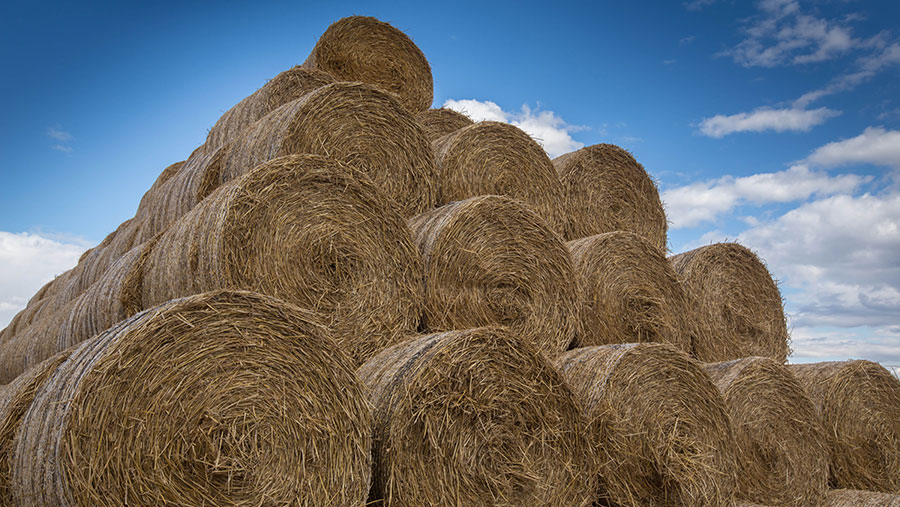Straw values up an average of £10/t as yields drop back
 © Tim Scrivener
© Tim Scrivener Merchants are paying an average of £10/t more for straw this season, but the figure is closer to £25/t in areas such as the south-west of England, where demand typically runs high, according to latest figures from the British Hay and Straw Merchants’ Association.
The ex-farm price merchants are paying to secure supplies was averaging £61.36/t for big square-baled barley straw in the week ending 9 August, with big baled wheat straw averaging £55.45/t.
This compares to an average of about £50/t for barley straw and £44/t for wheat straw at the same point in 2019.
See also: Higher straw values expected for Harvest 2020
However, there are significant regional differences. In the South West, the “buy-in” price merchants are giving farmers for barley straw is currently £70/t, compared with £45/t in August 2019, while the wheat straw price is £65/t, compared with £40/t last year.
Steven Roberson, of AF Biomass, the straw-dealing arm of farmer-owned Anglia Farmers, said yields were highly variable, ranging from 25% down on last year’s crop to 75% down in some cases, although last year had been exceptional for straw.
Despite this drop, prices had only risen by about 10% in East Anglia, which was less than many expected.
“It is all very well people saying straw must be worth a fortune, but they can’t necessarily afford to pay a fortune at the other end,” he said.
“It’s worth more money if it is the West Country, or where people can move it cheaply, but anything in East Anglia you can’t pay more than about mid-£50s/t, because it is going to be in the £80s/t by the time it has been hauled to its destination,” he said.
Mr Roberson said there was resistance among dairy and beef farmers to pay over the odds for straw, with many currently looking at bedding alternatives such as shavings and sand.
There was also a limit on what merchants were prepared to pay for straw going into the power stations, as they were working on long-term supply contracts, which did not reflect the fact the market was short.
However, there was “brisk demand” for top bales left over from last season, with customers more open to taking bales that last year they would have rejected as being too wet, he said.
In a normal year, the moisture maximum might be 25%, but this year buyers are being more flexible and may be willing to accept bales up to 28% or 29% moisture.
Andrew Loftus, strategic partnership director for online trading platform SellMyLivestock, said it was seeing slightly lower volumes marketed than would be normal for this time of year and signs that some were seeking to take advantage of anticipated high prices.
“However, we currently have wheat straw available ex-farm in East Yorkshire region from £65/t.”
